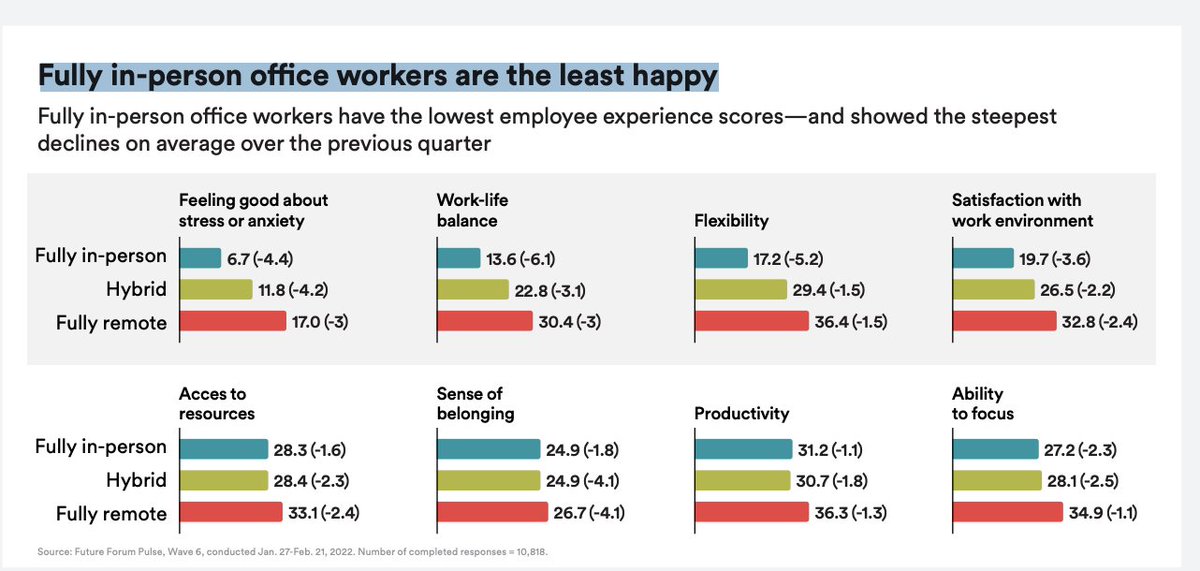Survey Shows In-Office Workers Least Happy via @sejournal, @BrianFr07823616
Study shows work-related stress and anxiety on the rise among full-time office workers. Inflexible return-to-office policies are negatively impacting the employee experience. The post Survey Shows In-Office Workers Least Happy appeared first on Search Engine Journal.

Future Forum study shows work-related stress and anxiety on the rise among full-time office workers.

Future Forum, a consortium launched by the messaging app Slack, released the findings from its global Pulse study for 2022.
With the increase in employees going back into the workplace following the pandemic, it found inflexible return-to-office policies are negatively impacting employee experience scores.
Full-time In-office Employees More Stressed And Anxious
According to this survey, 34% of workers have returned to the office full-time, the highest percentage since Future Forum began quarterly surveys in June 2020.
On questions all eight employee experiences measured, fully in-person employees had the lowest scores. Hybrid in-office/at-home employees were in the middle, with fully remote workers scoring the highest in all categories.

Key takeaways include:
Work-related stress and anxiety scores dropped 28% from the last quarter, a record low since the survey began. Work-life balance scores dropped 17%, with full-time office workers’ scores declining twice as much as hybrid and remote employees. Employees with fixed schedules are 260% more likely to seek a new job in the coming year. Australia, Germany, the U.K. and the U.S. all had all-time high scores for employee stressThe study suggested rigid policies and schedules are the driving cause behind employee attrition, among workers with fixed schedules This was most pronounced in women, minorities and working parents.
Double Standard For Executives And Employees
Future Forum also found much sharper declines in employee experience scores for rank-and-file employees, when compared to executives.
Work-life balance declined five times as much for non-executives as it did for executives. Non-executives also reported twice as much stress as their C-level counterparts.
The Pulse study suggested the reason behind this is executives’ scheduling autonomy, which allows them hybrid and remote options not provided to employees.
Questions Still Surround Work From Home Productivity
A 2021 study by ADP, found on-site work provides advantages that are lost when employees are fully remote. A study done by Airtasker just a year earlier found virtual commuters worked 1.4 more days per month than in-office workers.
Many company leaders also question employee productivity in a remote office. However, there are many established solutions employers can use to increase productivity for employees working from home.
Source: Future Forum (PDF Link)
Featured Image: Photographee.eu/Shutterstock
Subscribe to SEJ
Get our daily newsletter from SEJ's Founder Loren Baker about the latest news in the industry!


 Lynk
Lynk 








![6 Major Changes To Content Marketing In 2022 [Report Recap] via @sejournal, @semrush](https://cdn.searchenginejournal.com/wp-content/uploads/2022/03/featured-image-621e8ce87d108-sej.jpg)






















